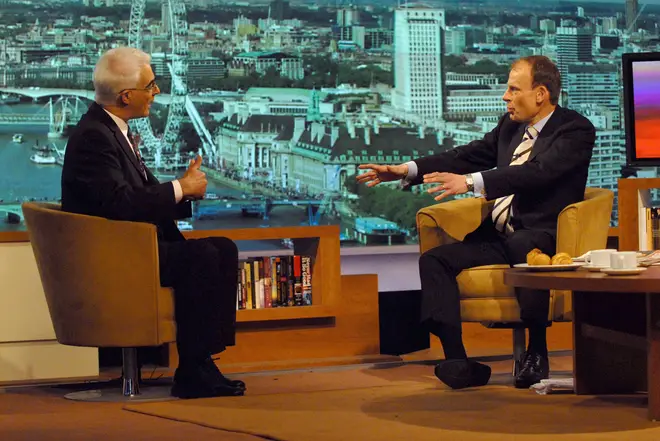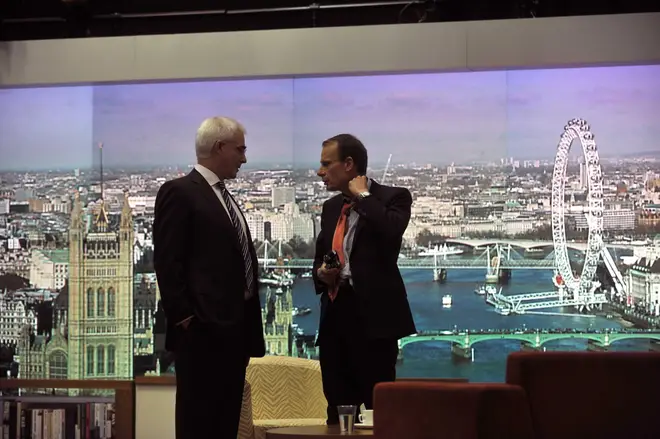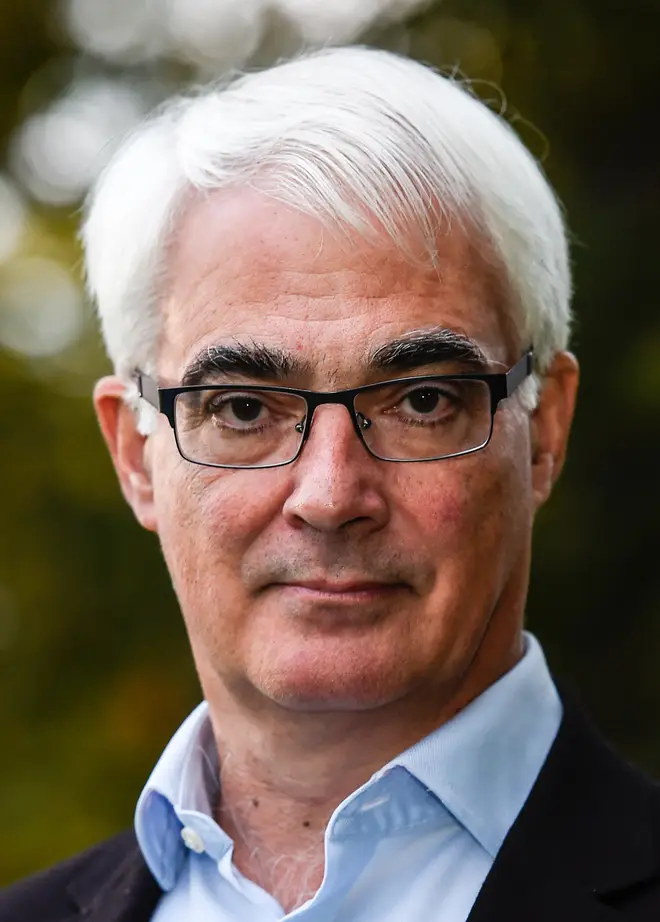
Clive Bull 1am - 4am
30 November 2023, 15:18

Andrew Marr and Shelagh Fogarty on Alistair Darling's death
Andrew Marr has said the UK was "lucky" that Alistair Darling, who died on Thursday aged 70, was in charge of the country's finances during the 2008 crash.
Lord Darling, who was Chancellor of the Exchequer from 2007-2010, died of cancer after a short illness, sparking tributes from across the political spectrum.
Speaking to LBC's Shelagh Fogarty in the hours after Lord Darling's death was announced, Andrew said that he was "genuinely very, very upset and shocked" at the news.
"It wasn't long ago that I saw him and he seemed to completely well in himself", he said.
"I don't have many friends who are politicians - I don't think journalists should - but he was certainly one of them.
Read more: Former chancellor and veteran Labour politician Alistair Darling dies aged 70
Read more: Don't rise to Tory bait, the rail strikes are their fault, Alistair Darling tells Labour

Lord Darling became a household name when Mr Brown appointed him chancellor after taking the keys to Number 10 back in 2007 which led to him steering the UK through the 2008 financial crisis.
Andrew said: "I think we were lucky to have him as Chancellor during that dreadful financial collapse at the time, he never panicked. I can remember talking to him at the time - he was completely calm.
"He understood what needed to be done. And quietly and unassumingly, he just got on with it. As I said, we were lucky to have him."
Tributes from other politicians have highlighted Lord Darling's economic and political skill, but Andrew said he was also "enormously gregarious" in his private life.

Andrew Marr on Alistair Darling
Andrew added: "He and his lovely wife, Maggie had a fantastically generous, lovely table, and they were both great enthusiasts for good food and good drink.
"It was always one of the warmest occasionally most raucous places in Edinburgh that you could land up."
Andrew said that Lord Darling also had a "very characteristically flinty and somewhat pessimistic Scottish view of the world."
"There was almost no occasion when I didn't raise with him some economic or political problem ahead, and he would reply: 'Well, you see, Andrew, actually, I think it's much worse than you suggest. Everything was worse.
"So you know, he wasn't one of life's natural, sunny optimists, but he had a really, really shrewd intelligence and looked at things in an isolated, clear way."

Before taking his seat in the House of Commons, Lord Darling cut his teeth in local politics as a councillor in the Lothian Regional Council.
Andrew said: "I first came across him back in the day when he was a left wing Labour councillor in Edinburgh with a lot of hair and a big beard, a very different character. Indeed, like a lot of people he moved politically in his lifetime. I think it's fair to say he was a genuine rebel when he was a younger man."
But he added that Lord Darling shifted his politics to become a "very early and absolutely sure advocate of the whole New Labour change to the to the party back in the 1980s."

Darling: 'Striking trade deal with EU is only thing Government can do to restore confidence'
Lord Darling was a keen proponent of Scotland remaining part of the United Kingdom, and campaigned for the cause in 2014. "I think that was an incredibly painful time for him," Andrew said. "He was a convinced Unionist leader of better together."
He added: "Alistair lived in Scotland all the way through and carried on living in Scotland afterwards. And he was abused in the street, and people would shout out to him in supermarkets. It was a really, really horrible experience and carry, frankly, carried on probably for the rest of his life. So he paid the price for that.

"And I think people sometimes don't understand quite what it was like to be in that exposed position. Because there are plenty of people in Scotland who to this day, absolutely hated him.
Andrew said Lord Darling showed that politicians "don't have to show boat, you don't have to be talking about yourself all the time.
"Alistair almost never talked about himself. Eventually, he would discuss his the family home on the Isle of Lewis and his sort of Lewis background and so forth. And his schooling, which he didn't totally enjoy, and that kind of thing.
"But he was not somebody who would tell you about Alistair Darling, if he could possibly avoid it. He'd he find it much more interesting to talk about economics, the condition of the Labour Party, how the Conservative government's doing - that kind of thing."